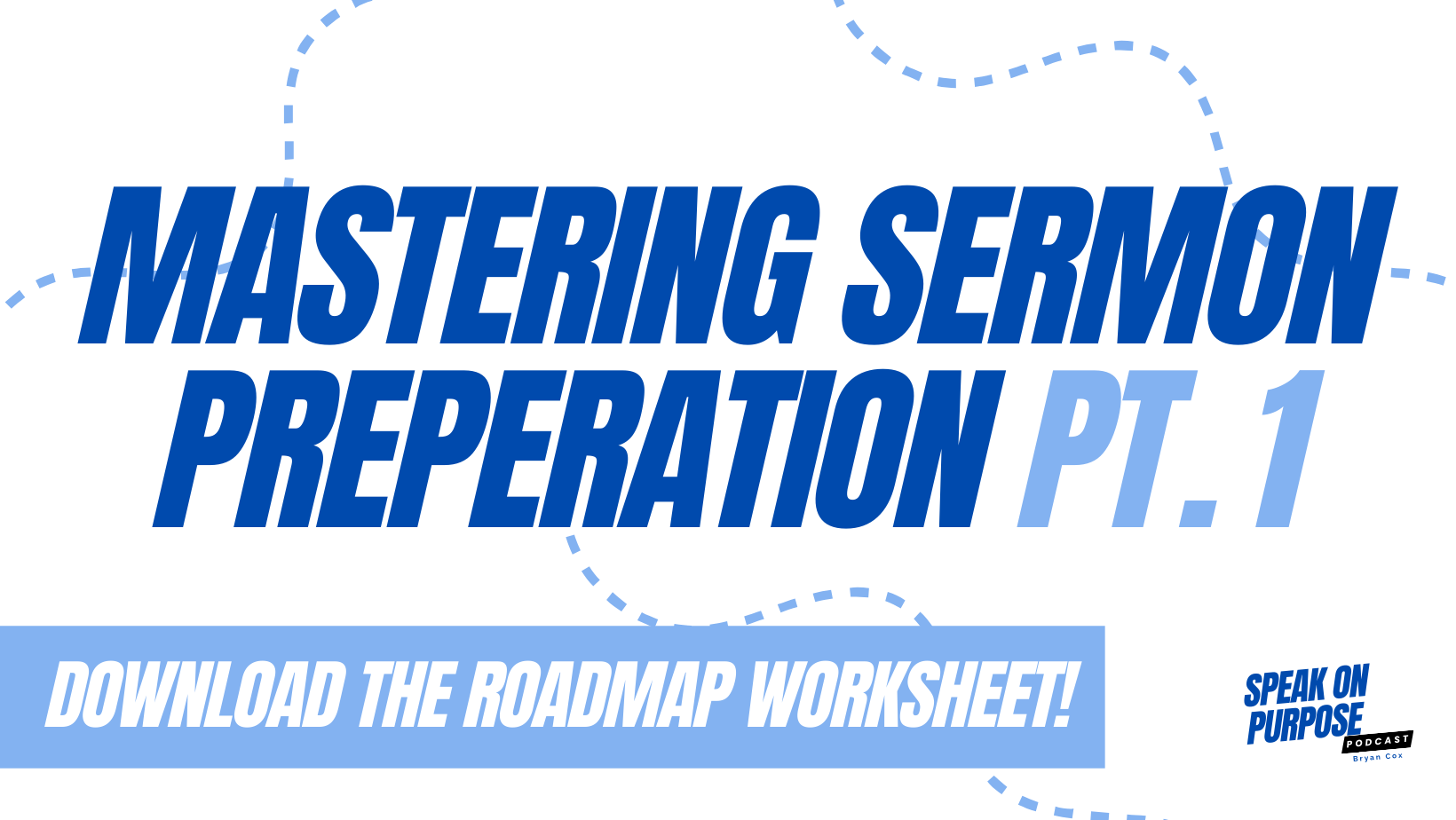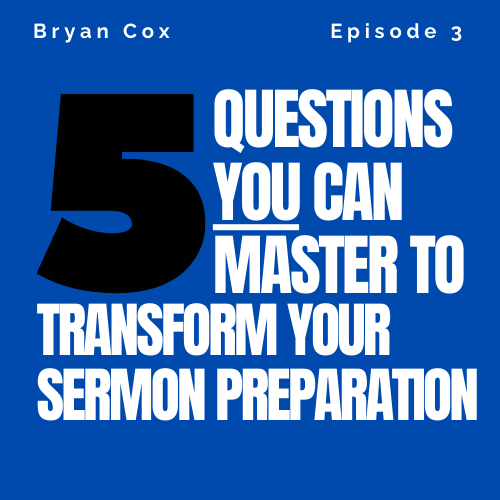Mastering Sermon Prep with these 5 questions. Part One

Mastering Sermon Prep: Part 1
Picture this: Have you ever stood in front of an audience, ready to deliver a powerful message, only to have your mind go completely blank? That moment of terror—staring at the congregation while they stare back at you—
This is something many preachers and speakers experience, yet few discuss openly. It can be a deeply unsettling experience that makes us question our calling and purpose as communicators of God's word.
After experiencing this paralyzing moment multiple times in my ministry, I discovered a transformative approach to sermon preparation through Andy Stanley's book "Communicating for Change." The approach centers around five critical questions, with the first being perhaps the most challenging yet foundational:
The process:
Step One: Begin to answer the question "What do they need to know?"
This seemingly simple question seems simple to answer, but honestly it takes a good bit of thinking to get to the real answer. I find that most pastors or speakers stop too soon thinking they have the answer. You must dig until you find it. Don't stand up on stage until you know the answer to this question.
Step Two: Define the they
Next step in the process begins with defining who "they" are—your audience. Understanding the demographics, circumstances, and spiritual maturity of those in the room shapes everything from your illustrations to your application points. I've learned to write down the venue, environment, and audience composition before I begin crafting my message.
Is it a Sunday morning service with families? A youth retreat? A leadership conference? Each context demands different considerations. Without this clarity, you risk missing common ground with your listeners, as illustrated by the pastor who unwittingly destroyed children's belief in Santa Claus during a Christmas service because he failed to consider who was in the room.
Step Three: Define the Key verse
Once you've identified your audience, the next step involves pinpointing your key verse—the scriptural foundation from which you'll draw truth. I approach the Bible like a treasure map, leading us to spiritual insights that can transform hearts and minds. Just as my father could navigate any road with his trusty atlas before the days of GPS, we must learn to navigate scripture with precision and respect for context. This requires reading multiple translations, understanding historical background, and examining the full context to ensure we're extracting authentic meaning rather than imposing our own ideas.
Step Four: Mapping the route
The process continues with "mapping your route"—breaking down the verse into its component parts. Using Joshua 1:8 as an example, I highlight key verbs (keep, meditate, be careful), objects (book, law, lips), times (day and night), and outcomes (prosperous, successful). This detailed analysis helps me identify the essential elements God is communicating in the passage. From there, I make a comprehensive list categorizing each element: characters, locations/times, objects, and actions/movements within the text.
Step Five: Create your own sentence/ the destination
The fifth step involves creating your own sentence that captures the central truth of the passage while remaining faithful to the original context. For Joshua 1:8, I might formulate:
"If you speak and meditate on this book, then and only then will you be successful."
This becomes my "destination"—the singular truth that answers the question: "What do they need to know?" In this case: "They need to read and meditate on the Word of God every day."
This structured approach to sermon preparation does more than prevent those terrifying moments of mental blankness; it ensures your message has focus, biblical integrity, and relevance to your specific audience. When you know exactly what you're trying to say and why it matters to the people before you, you can speak with confidence and authority that comes from thorough preparation rather than mere personality or performance.
Remember that answering this first question is just the beginning. There are four more questions to explore in the sermon preparation process, each building upon the foundation established by knowing what your audience needs to hear. By working through this methodical approach, you transform from a person who has something to say into a person who has something to say that people need to hear—and that makes all the difference in effective, life-changing communication.





